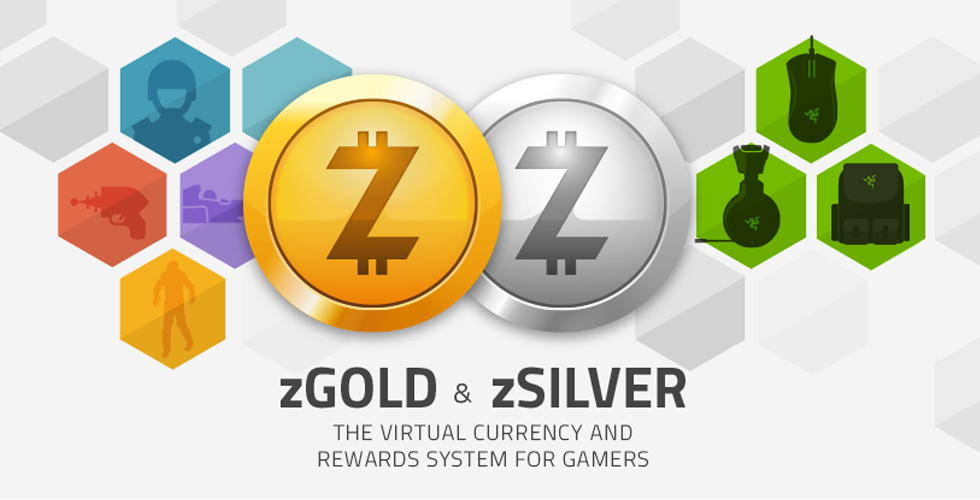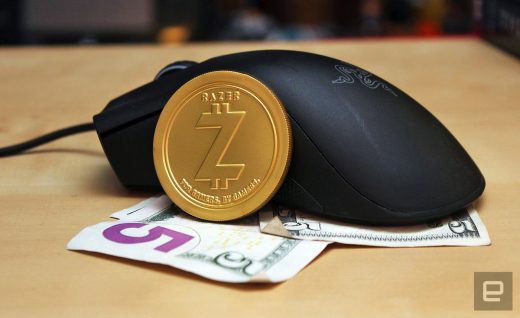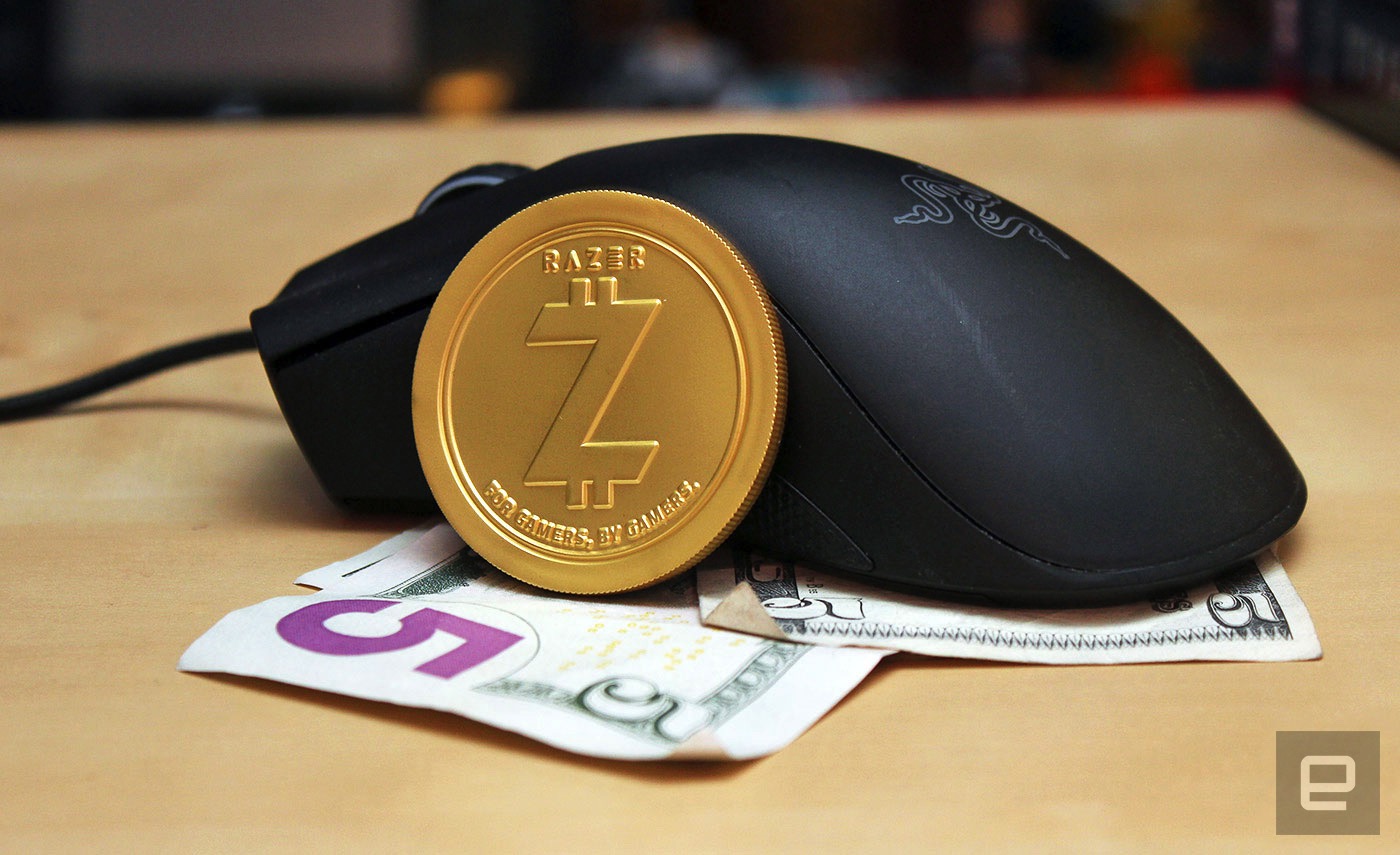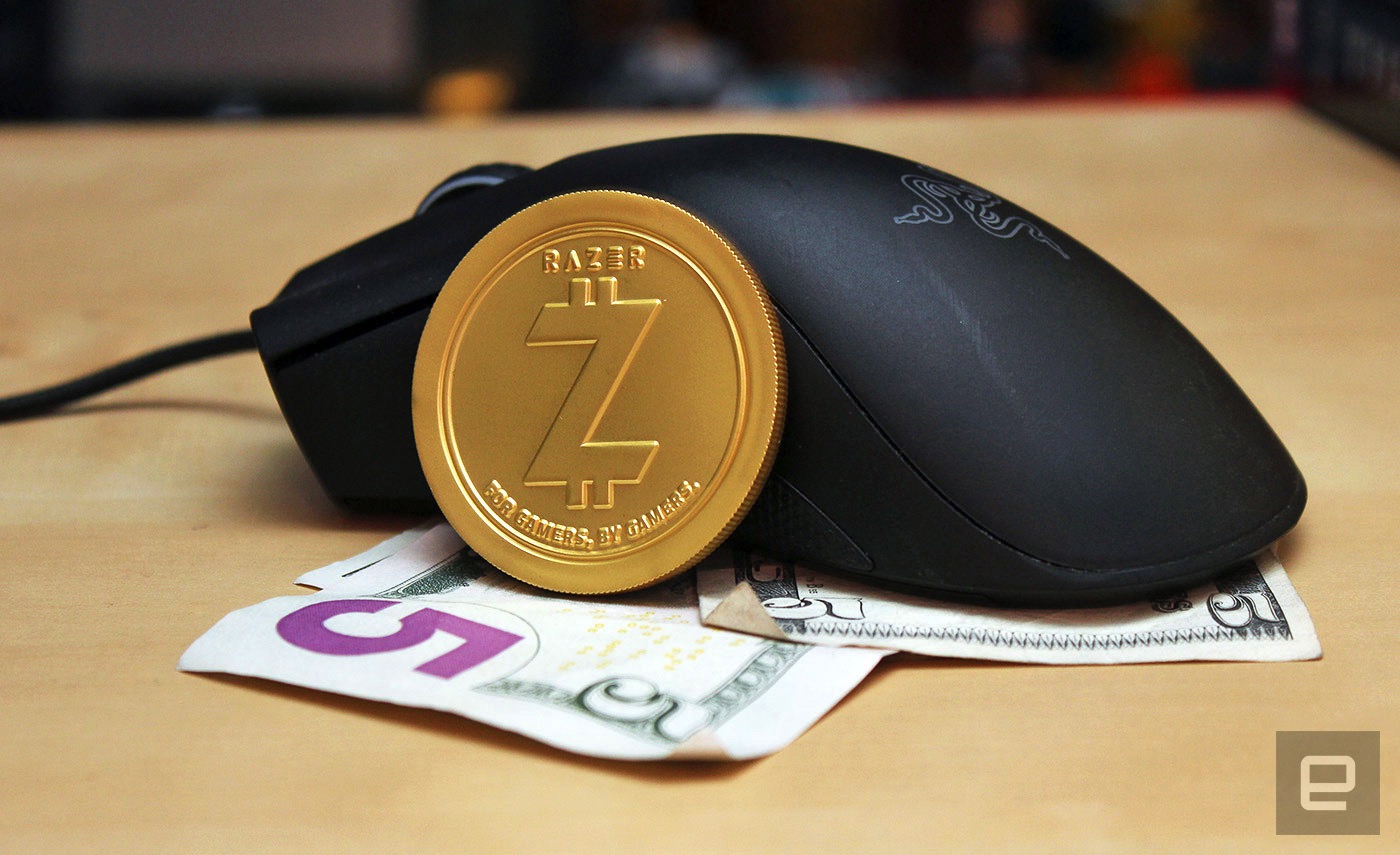Razer’s new digital currency is both outdated and enticing
The last thing the gaming industry needs is another digital currency system that supplants dollars for an exclusive “points” system — and yet that’s exactly what Razer invited me to see at its San Francisco offices last week. The company’s pitch was almost contradictory. Razer zVault is a digital wallet system designed to unify payments across platforms encumbered by a myriad of other fragmented digital wallets.
It sounds ridiculous, but it’s already moderately successful: over six weeks, the zVault pilot program has already tracked over 370,000 transactions using zVault’s zGold currency. That’s probably due in part to the fact that zVault boasts a burgeoning rewards program that offers users discounts, free games and a second bonus currency that can be used to buy Razer accessories and laptops.
Here’s how it works: zVault users load their digital wallets up with denominations of $30, $50 or $100 in cash, which is then converted to zGold, crediting 100 units of Razer’s currency for every dollar deposited. After spending it on Steam keys from stores like GamersGate and Indie Gala, Razer will credit a second digital currency, zSilver, to the user’s account. zSilver works kind of like credit card reward points, and can be redeemed for Razer products and discounts. Razer says it plans to offer gift cards for other stores on the zSilver shop soon, too.

That alone is pretty enticing, but Razer’s bid for zVault’s success goes deeper. Buying Steam keys with zGold can net users discounts on their total purchases (up to 15 percent) and free games. The digital currency can also be used to purchase DLC add-ons and in-game items in titles like Paladins and Smite. On top of that, using Razer’s Cortex software or Arena eSports platform can earn users extra zSilver. In fact, that kind of seems like the point — using the zVault rewards system to drive more users to use Razer’s software suite and entrench themselves deeper in the company’s ecosystem.
That’s a lot carrots to hang in front of prospective users, but the system on a whole still feels a little odd. With the exception of in-game real money currencies like Perfect World’s ZEN, point-based digital wallets are outmoded. Absolutely nobody looks back on Wii and Microsoft points with fondness. Still, if anybody can make an anachronistic points system work, it might be Razer. The company’s fans are notoriously loyal — there’s a reason Razer products win Engadget’s CES people’s choice award on a regular basis. That loyalty has been enough to make zVault’s Razer Insider pilot program a success. If the company can expand its retailer partnerships and reward offerings, it just might draw attention from the rest of the gaming community, too.
(87)









